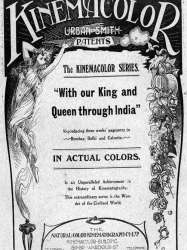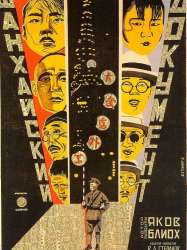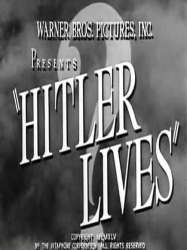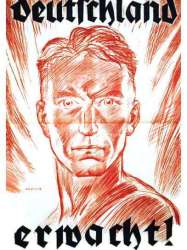Films with theme "Documentary films about politics", sorted by revenue

Looking for Nicolas Sarkozy (2011)
, 1h18Origin France
Genres Documentary
Themes Politique, Documentaire sur une personnalité, Documentary films about politics, Political films
Quel regard ont-ils porté sur l’élection de 2007, le Bling Bling, le pouvoir personnel, les dérapages, la mise au pas des médias, les crises financières et politiques, les fiascos diplomatiques, les accusations de népotisme avec l’affaire Jean Sarkozy, le divorce et le mariage à grand spectacle, la course aux voix du Front National, la chasse aux Roms, le Printemps Arabe, la guerre en Libye, la chute dans les sondages, l’élection de 2012, etc. À travers le point de vue de ces journalistes prestigeux, tous fascinés par la complexité du personnage, et à l'aide d'archives du monde entier, William Karel nous offre plus qu'un portrait ou un bilan, une chronique (im)pertinente et sans concession du règne de Nicolas Sarkozy.
 , 1h25
, 1h25Directed by Yolande Zauberman
Origin France
Genres Documentary
Themes Films set in Africa, Films about religion, Films about sexuality, Documentary films about law, Documentary films about war, Documentary films about historical events, Documentaire sur une personnalité, Documentary films about politics, Documentary films about religion, Political films, Films about Jews and Judaism
Actors Juliano Mer-Khamis
Dans les bars de Tel Aviv, la nuit, la réalisatrice demande à des jeunes Juifs s'ils auraient des relations sexuelles avec des Arabes, et à des jeunes Arabes s'ils feraient l'amour avec des Juifs. Chacun donne son avis, avec plus ou moins d'explications, sur le symbole que cela peut représenter pour eux (beaucoup l'ont déjà fait) ou au contraire leur refus. Des jeunes issus de familles mixtes (un parent juif, l'autre arabe) sont également interviewés. Le film recueille aussi les témoignages du journaliste Gideon Levy et de l'acteur Juliano Mer-Khamis, de mère juive et de père arabe, assassiné en 2011 par des Palestiniens à Jénine.
 , 1minutes
, 1minutesDirected by Thomas Alva Edison
Origin USA
Genres Documentary
Themes Documentary films about historical events, Documentaire sur une personnalité, Documentary films about politics, Political films

The Coronation of Edward VII (1902)
, 3minutesDirected by Georges Méliès, Charles Urban
Origin France
Genres Documentary, Historical
Themes Documentary films about historical events, Documentaire sur une personnalité, Documentary films about politics, Political films, Films about royalty

Roosevelt in Africa (1910)
Origin USA
Genres Biography, Documentary
Themes Documentary films about historical events, Documentaire sur une personnalité, Documentary films about politics, Political films

The Pageant Procession (1912)
, 2h30Origin United-kingdom
Genres Documentary
Themes Documentary films about historical events, Documentaire sur une personnalité, Documentary films about politics, Political films, Films about royalty

The Shanghai Document (1928)
Genres Documentary
Themes Documentary films about politics, Political films

Hitler's Reign of Terror (1934)
, 55minutesOrigin USA
Genres Drama, Documentary
Themes Politique, Documentary films about war, Documentary films about historical events, Documentaire sur une personnalité, Documentary films about politics, Hitler, Political films, Documentary films about World War II
As the picture opens, a re-enacted phone call featuring reporter Cornelius Vanderbilt, Jr. in Germany, and narrator Edwin C. Hill in New York is depicted. Then a parade of people carrying torchlights in Berlin, where Jewish works and other political books are burned. Vanderbilt meets with Hill, and then flies out of the country. Hill talks with Vanderbilt about the problems in his country, then a re-enacted interview between Adolf Hitler and Vanderbilt. During a viewing of World War I battle footage, Hitler's home town, Leonidad, Austria, and his parents' graves are pictured. Vanderbilt goes to Vienna, to see Chancellor Dollfuss, and he films several Austrian Nazi riots during a parade. In a re-enactment, Vanderbilt's passport is stolen, and there are several shots of Nazis abusing Jews. In yet another re-enactment, Vanderbilt interviews Crown Prince Wilhelm, and more books are burned. Helen Keller talks to an interviewer about her books, which were burned by the Nazis. Then a conversation Vanderbilt, Kaiser Wilhelm II in Doorn, Holland, and Prince Louis Ferdinand had is re-enacted. Actual anti-Nazi speeches given by prominent Jews and some Gentiles are shown and the Nazis are shown trying to alter the Bible. In the final scene, Congressman Samuel Dickstein of New York and Hill give speeches directly to the audience, explaining the dangers of Nazism.

My Song Goes Forth (1937)
, 33minutesOrigin United-kingdom
Themes Films set in Africa, Films about racism, Documentary films about racism, Documentary films about law, Documentaire sur une personnalité, Documentary films about politics, Political films
Actors Paul Robeson
The advance publicity booklet on the film when it was entitled "Africa Sings", touted it as showing "what the white man achieved for himself" and "what he has done for he natives." "Africa Sings" was one of the first documentary films from South Africa to take a look at the lives of South Africans of all races. There are images of location life, schools and colleges, and a cross-section of occupations, from mine-workers to road-gangs, school-teachers to house- servants, waiters to cane-cutters. Mainstream reviewers gave the documentary a tepid response; the London Daily Worker thought it was too bland to serve a staunch liberationist purpose.

People of the Cumberland (1937)
, 18minutesDirected by Elia Kazan, Sidney Meyers
Origin USA
Genres Documentary
Themes Films about the labor movement, Documentary films about politics, Political films
The film takes place in rural Tennessee, where communities have experienced economic and environmental devastation created by the coal mining industry. The introduction of the Highlander Folk School in 1931 by educator Myles Horton and the movement to bring labor union representation to the region are shown as means of empowering the population. Efforts are made to stop the union activities with the murder of a local organizer, but eventually the union movement is able to take root with the local workforce.

Inside Nazi Germany (1938)
, 16minutesOrigin USA
Genres Documentary
Themes Documentary films about war, Documentary films about historical events, Documentary films about politics, Political films, Documentary films about World War II
Actors Jackson Beck

Shors (1939)
, 1h32Directed by Alexandre Dovjenko, Yuliya Solntseva
Genres Drama, Historical
Themes Documentaire sur une personnalité, Documentary films about politics, Political films
Actors Yevgeny Samoylov, Nikolai Kryuchkov

Native Land (1942)
, 1h20Directed by Paul Strand
Origin USA
Genres Drama, Documentary, Historical
Themes Politique, Films about the labor movement, Documentary films about politics, Political films
Actors Paul Robeson, Robert Strauss, Houseley Stevenson, Howard Da Silva, Art Smith, John Marley
Face aux violences de la police et des milices privées au service du patronat, dans l'Amérique des années 1930, des travailleurs luttent, parfois au péril de leur vie, afin de préserver les libertés civiques.

Hitler Lives (1945)
, 17minutesDirected by Don Siegel
Origin USA
Genres Documentary
Themes Documentary films about war, Documentary films about historical events, Documentaire sur une personnalité, Documentary films about politics, Hitler, Political films, Documentary films about World War II
Actors Knox Manning
Documentaire de propagande expliquant que l'idéologie nazie pourrait se diffuser à nouveau malgré la mort du Führer et la défaite allemande.
 Connection
Connection
